|
In today's VLOG, Program Associate Jonathan Harrison shares four actions that have helped him to persevere as a college student during the COVID-19 pandemic. For more resources to accompany you during COVID-19, please click here.
0 Comments
The USCCB designates each October as Respect Life Month: “a time to focus on God’s precious gift of human life and our responsibility to care for, protect, and defend the lives of our brothers and sisters.” The duty to bear Christian witness to the dignity of every human life extends, of course, throughout the year. The annual March for Life in DC and similar marches in other cities highlight the efforts of advocates for the unborn, but being pro-life includes many activities that receive less fanfare but that are no less important. By appreciating the inherent dignity and worth of each life as created by God, we recognize the sanctity of creation and our need to defend it.
The existence of an abortion clinic near my home exemplifies disregard for the dignity of human life, as well as the reality that many clients feel as if there is no better option for themselves or the nascent life inside the womb. To attempt to provide clients with an alternative to abortion and offer support, a number of advocates on the sidewalk offer counseling while others protest the clinic’s operation, pray for the souls affected, and pray in reparation for the sins committed there. Drivers and pedestrians passing by often passionately criticize our presence; many others choose ignorance or don’t want to become involved in such a contentious issue. It’s not a comfortable situation to be in, but we know we have a chance to intervene on behalf of the unborn and the parent(s) who don’t know where else to turn for assistance. Our position is not one of judgment but of love; we cannot turn a blind eye to this silent suffering. Being a father, I vividly recall the excitement and joy of seeing my child develop in the womb of my spouse and then be delivered into this world as an infant. These life events made my pro-life convictions more tangible for me. Even under less-than-ideal circumstances of conception, the personhood of the unborn is not diminished and therefore merits protection. Fatherhood continues to teach me about myself and my role leading a family towards holiness. I have learned I must recognize the graces God bestows on us to build our domestic church and be witnesses to the sanctity of life: the person, the family, and our Faith. I am encouraged by the many who engage with the culture and lawmakers to challenge preconceptions or misconceptions about the value of human life. The immigrant, refugee, criminal, and marginalized are endowed with the same worth as each of us! Threats to the sanctity of life endure in our society and also include sterilizations, physician-assisted suicides, human trafficking, mistreatment and neglect of seniors and the disabled, and other forms of abuse. While others may ignore these sad realities, the pro-life movement knows we have our work cut out for us. In every way in which we engage, educate, and work to convert hearts and minds to be more aware of the value of the life which we have been gifted, we must always act with love, compassion, and hope for the protection and celebration of all forms of human life, from conception through natural death. Life is precious, life is sacred, and life is worth protecting. If we do not take a stand to defend the most vulnerable, who will?
I opened the email from my aunt, half amused and half bewildered. Before me was a message for the whole family: Rules for Thanksgiving Dinner. Per her request, our Thanksgiving meal would be void of any conversation about COVID-19, politics, Church, racism, the media, or yard signs. “Let’s just take a few hours to forgo the division and just enjoy one another,” she wrote.
Initially, I balked at the idea that my family would need ground rules to be able to keep peace during our time together. But frankly, my aunt wasn’t wrong—I don’t know if I have ever felt more disunited from my family, friends, and neighbors. Every post, article, and opinion adds to the climate of contentiousness. I waver between holding my tongue for fear of saying the wrong thing and lambasting innocent bystanders with tidal waves of repressed contempt. As I read today’s Gospel, I took the words of Christ and interpreted them to excuse the chasm the current cultural climate has created between the people that I love. “See! Jesus said it would be this way. It’s right there in Luke. ‘Do you think that I have come to bring peace? No, I tell you, but rather division!’” Somehow, I do not think the division caused by commitment to party lines and dedication to political ideologies is what Jesus had in mind. Rather, Jesus saw commitment to Him as source of division. The Holy Scriptures remind us that we, as disciples of Jesus, will stand apart from nonbelievers. Our lives will look different from those whose hearts have not been claimed for Christ as we live out our calling to love. The reminder of this truth forced me to re-evaluate. Admittedly, the separation I feel from my fellow Catholics is not driven by my love for Jesus. Instead, it is tangled in a desire to feel safeguarded by policies and politicians, who do not have the redemptive power of the Savior. It is fueled by a desire to be right, and in control. No, this is certainly not what Jesus had in mind. I will stand divided against my neighbors and friends because of my relationship with Jesus. My love for Him will not always be accepted, and my obedience to Him will make my life look different from the friend who has not yet encountered Christ. So when I feel the ache of division and the discomfort of separation I consider the following:
If I am going to feel the sting of division in this life, I want it be for a worthy reason. I will let myself feel the otherness of being a light in the dark. I will cling to the unifying Body of Christ as the world chooses sides around me. I will hope in the promise of the world to come, where there is no strife or division, only love. For more spiritual resources to accompany you during COVID-19, please click here.
On October 17th, the Catholic Apostolate Center celebrated its ninth anniversary of reviving faith, rekindling charity, and forming apostles in the spirit of St. Vincent Pallotti. The Founder of the Union of Catholic Apostolate, the Pallottine Family, gave these words of St. Paul as a motto, “the charity of Christ urges us on” (2 Cor. 5:14). Pope Francis writes in his new Encyclical Letter, Fratelli Tutti, about the nature of this charity: “Charity, with its impulse to universality, is capable of building a new world” (183). As Catholics, we do not reserve our charity simply to those we find acceptable. Our charity is universal, it is catholic, in the broader sense of the word. No one is exempt from offering it and we cannot exempt anyone from our charity. Nor should we reject the charity of another, if we understand charity to mean, as St. Thomas Aquinas did, ‘willing the good of the other.” Charity evangelizes us all. For St. Vincent Pallotti, the apostle, the one who is sent by Christ, never disconnects faith and charity. They are intimately connected to one another. Less than a week prior to the founding of the Catholic Apostolate Center in 2011, Pope Benedict XVI put it this way in Porta Fidei: “‘Caritas Christi urget nos’ (2 Cor 5:14): it is the love of Christ that fills our hearts and impels us to evangelize” (7). As we celebrate our ninth year, we are grateful for the opportunity to live these words. As a ministry of the Pallottine Fathers and Brothers of the Immaculate Conception Province, we continue to serve the Church and the world. On behalf of the Pallottines, thank you to all staff members, collaborators, advisors, collaborating organizations, benefactors, and everyone who uses and promotes our resources. There are many new ones to come. The Center team is in thanksgiving to the Holy Spirit for guiding us to this day and for aiding us in the future. May the Charity of Christ urge us on!
Through the halfway point in the fall semester, most any college student could testify to the highs and lows of trying to learn in these trying times. From Internet issues, Zoom exams, and burnout, each class that goes smoothly is a little victory, but some days it is just so hard to focus on classes. My inner biochemistry major wishes that learning by osmosis was possible – a passive learning because our attention is drawn to so much distraction. On the other hand, even though it requires a little more active thought, I know there’ve been some highs so far this semester. Even with social distancing, I have made new friendships and renewed others. Since I serve as a Resident Assistant at my university, where we have just freshmen and RAs on campus, I have gotten to see freshmen build friendships, find their niche, and take on leadership positions in the campus community. Through my personal experience and seeing the freshmen on my campus, a word to describe the semester so far would be “perseverance.” For me, perseverance has been continuing along the path of learning despite the challenges and difficulties. I have worked to develop four actions into habits during this semester to help build perseverance:
Ultimately, I hope to continue building upon these four actions for the rest of the semester to help strengthen my perseverance and to experience more highs than lows from this abnormal time. To help motivate me to keep going day after day in classes, I wrote this quote above my desk: “Nothing great is ever achieved without much enduring” – St. Catherina of Siena For more resources to grow spiritually during the COVID-19 pandemic, please click here.
One of the things I love about Catholicism is that we celebrate the mysteries of our faith in a physical way. Going to Mass, kneeling, standing, singing, receiving the Eucharist, hearing and proclaiming the Word of God, experiencing community after Mass or at parish events. Some of our liturgical feast days even emphasize the physical contact between us and the Divine. Think of reverencing the wood of the Cross on Good Friday or participating in a Eucharistic procession on Corpus Christi. Our faith is incarnational, and our bodies are important conduits for worship. That’s part of the reason the last several months have been so difficult for so many. These physical elements of worship have been—largely—unavailable to us because of COVID-19 and the practice of physical and social distancing. Most of us have also been physically disconnected from our communities of faith, friends, and family. We’ve missed important events like birthdays, retirement parties, and even funerals. The emotional, spiritual, and psychological effects of this separation are very real and very serious. And it’s been clear from the outset of this pandemic that the Church must take action to alleviate the impact of isolation, despair, and loneliness caused by this pandemic. But who will lead the charge? I find myself asking, what is the Church going to do about it? How will we get through this? And then I realize, the Spirit is calling me. And, friends, the Spirit is calling you too. We’re not being called to wait around while someone else figures it out. God is calling us to figure this out together. We must remember that we are the Church on earth, and we are being invited by the Spirit to cooperate with God’s grace to take action and serve others, right now. We can’t simply wait for someone else to help. Those of us who are baptized are called to be missionary disciples and, ultimately, saints. And this call comes with a personal responsibility to recognize that all our lives are interwoven as branches grafted onto the Vine, as various parts of one Body (1 Corinthians 12). We are connected to one another through our baptism into Christ. Paul says, “The body is not a single part, but many.” And because of this interconnectedness, when one part suffers, the whole body suffers. So, we’ve got to do something about that, because we’re called to be “doers”. We are all suffering in some way during this pandemic. It’s not even possible to downplay that. And we all feel one another’s burdens. We especially feel our personal stresses and anxieties, day in and day out. I believe one of the answers to this anxiety and suffering is the beautiful work of spiritual accompaniment. The call to spiritual accompaniment is incarnational and based on the love of Christ. Spiritual accompaniment urges us out of our own interior world and presses us to walk with our brother or sister in whatever situation they might find themselves. Pope Benedict XVI says that God’s love for humanity is so strong that “it turns God against himself, his love against his justice” (Deus Caritas Est, 10). How, then, can we demonstrate a reflection of this great, personal love to one another if we can’t be physically present to one another? I believe we must be creative and find ways to communicate our companionship to one another in meaningful ways. We can allow ourselves to be challenged by these questions while we reflect on this topic: Do I have the ability to be present to my suffering neighbor in any way today? Do I have the capacity to do charitable spiritual accompaniment during this pandemic? I believe one effective way to spiritually accompany others as we remain physically distant is to ask challenging questions of others and engage in honest conversation. Though this may seem simple, “faith sharing” is a powerful way to be witnesses of God’s presence, and we all need to be reminded of God’s presence these days. I think there are two simple, penetrating questions that can start fantastic spiritual conversations that open our eyes to the great works of God. They are:
The answers to both of these questions reveal our hearts, our spiritual yearnings, our joys, and our sorrows; the answers to both of these questions lead us to recognize God’s presence among us, either by contemplating where we’ve seen God or petitioning His aid through prayer. I want to challenge you to invite a friend or someone you’re close with to consider these questions and then to hear their answers. Perhaps you’ll be surprised at the way the Spirit guides the conversation. I believe that through this simple practice of spiritual accompaniment, we will grow closer with one another, though distance or politics or ideologies may keep us apart. Loving and holy conversation is one way to begin healing the wounds caused over these last several months, and it is one way to accompany one another on the road as we travel strange, new paths together. To learn more about spiritual accompaniment, please click here. For more resources to deepen your faith during COVID-19, please click here.
Yesterday we celebrated the Memorial of Our Lady of the Rosary--a Feast Day that reminds of the important role that the rosary plays in our daily lives. It is a form of prayer that we seek when we are struggling and need the comforting embrace of a mother. It is a form of prayer that is joyful, celebrating our successes with Christ through Mary.
Devotions to Mary have always been an important aspect of my faith. In particular, the rosary has helped me through many tough times in my life and given me the strength to continue forming my life to Christ, but its importance was reinforced in the first few months of my college career when I joined the Knights of Columbus. Upon entering the Order, Knights are given a rosary as a symbol of our devotion to Mary and a reality of our reliance on her example and her intercession with God But why should we say the rosary? Saint John Paul II gives a clear picture of the rosary’s importance: “The Rosary mystically transports us to Mary's side as she is busy watching over the human growth of Christ in the home of Nazareth. This enables her to train us and to mold us with the same care, until Christ is “fully formed” in us.” When we pray the rosary, many of us are seeking the warm embrace of a mother, someone who can reassure us in our fears and give us the strength to live out each day for Christ. Mary is our mother in every sense of that word. Christ, moments from death, says to Mary, “Behold, your son,” and to the disciple whom he loved, “Behold, your mother.” With these words Christ gives Mary to all of us as our mother, the Mother of the Church, and with these words we are formed by her just as Christ was. The rosary does not pull our attention away from Christ, but rather joins us with him through our love of Mary. John Paul II tells us in Rosarium Virginis Mariae, “Never as in the Rosary do the life of Jesus and that of Mary appear so deeply joined. Mary lives only in Christ and for Christ!” The rosary allows us to participate in that union and calls us to share in the life of Christ through our relationship with his Mother. Each time we pray the rosary we focus on the Joyful, Sorrowful, Glorious, or Luminous mysteries. These are not only drawing us closer to Mary, but to the life of Christ as each set of mysteries is grounded in the Gospel. When we pray the rosary we do not just repeat prayers over and over again, but rather we are given the opportunity to live out a different aspect of the life of Christ with each decade. Repetition is an important aspect of the rosary, but is it actually repetition? Archbishop Fulton Sheen in his book “The World’s First Love” tells us that it is not repetition for each time we say the rosary, “we are saying to God, the Trinity, to the Incarnate Saviour, to the Blessed Mother: "I love you, I love you, I love you." Each time it means something different, because, at each decade, our mind is moving to a new demonstration of the Saviour's love.” Who better to remind us of the Christ’s love than Mary, the Mother of God, our mother, who raised Jesus, formed him, and followed him. Who better to emulate than Mary, who watched her son suffer and die on the cross for our salvation. Each time we say the rosary we are embraced by our mother, we are renewed in our faith, and we are reminded of God’s love. “Remember, O most gracious Virgin Mary, that never was it known that anyone who fled to thy protection, implored thy help, or sought thine intercession was left unaided. Inspired by this confidence, I fly unto thee, O Virgin of virgins, my mother; to thee do I come, before thee I stand, sinful and sorrowful. O Mother of the Word Incarnate, despise not my petitions, but in thy mercy hear and answer me. Amen.” *This post was originally published on October 7, 2014. Nicholas Shields is a young professional from Washington, D.C. What does it mean to be bicultural? It means that a person can represent and identify with more than one country. I have been given the blessing of representing three cultures at the same time: I am Mexican, Salvadorian, and American. Representing these three cultures has given me the opportunity to see God’s beautiful creation from different perspectives and enriched my understanding of the Church. As I have grown, I’ve encountered Christ who has revealed my vocation and his love for me through this tricultural blessing. As a child, all I knew about my faith was either through my parents or Sunday school at my local parish. I was taught Bible stories, saint stories, and prayers in Spanish. I was happy to be in that bubble away from the math problems at school, my English cartoons, and anything related to the American culture. These were the only times I could actually learn about who I was as a Catholic Latina. My Mexican and Salvadorian traditions were intertwined with my faith. Being Catholic and part of the Latino community meant we professed our love for God through our actions. Our focus wasn’t reading or studying the faith because that was never in our reach to dive into. Instead, the community learned that their actions were their way to live the mission of Christ in their day to day lives. This was something I learned very early on. I also learned how important it was to my parents for me to learn about our faith and its traditions. One of my favorite memories will always be the celebration of the Feast of Our Lady of Guadalupe. It was always full of color, and the church was filled with the smell of red roses. What I remember the most is staying up past my bedtime, but also being able to see the faith and the love many people had towards our Blessed Mother. After many years of being in my little Spanish bubble, my parents decided to send me to a private Catholic school. This is where I realized there was way more to my faith than I was taught at Sunday school. I realized that I had to burst my bubble to actually learn more about my faith in English. It was not easy to understand the different prayers in English or to take religion classes in English. My experience in private Catholic school also helped me realize that there was more to my faith than just my Spanish world. I decided to become the student that was always asking different theological questions during religion class. I became obsessed with learning about the different doctrines and about the significance of the church’s architecture. All of this opened a new door to my spiritual life. I could experience Christ through Church teaching as well as serve him through my actions. I became aware that there was no need to separate all three cultures for different aspects of my life! Somehow, all my cultures were blending together in ways I would have never imagined. All of them could work together to strengthen my faith. Over many years, I have learned that being bilingual and tricultural means I can live out my faith in unique ways. I can discover Christ not only through the combination of these cultures, but also within each individual one. Now, I have no need for different bubbles to live out my faith because God created me to praise him and uniquely evangelize about his love. Each culture has helped me deepen my relationship with Christ. As a lector in the Spanish Mass, I am able to read and analyze the Word of God. Later on, these readings help me have meaningful conversations in my Theology classes at The Catholic University of America. By learning about different resources and reading in class, I have also learned more about how I can help my Latino community. Now as a young adult, I have become more aware that my cultures, traditions, and languages have molded my faith and shaped my way of life as a member of the laity of the Church. For more resources on cultural diversity, please click here. “Because children have abounding vitality, because they are in spirit fierce and free, therefore they want things repeated and unchanged. They always say, "Do it again"; and the grown-up person does it again until he is nearly dead. For grown-up people are not strong enough to exult in monotony. But perhaps God is strong enough to exult in monotony. It is possible that God says every morning, "Do it again" to the sun; and every evening, "Do it again" to the moon. It may not be automatic necessity that makes all daisies alike; it may be that God makes every daisy separately, but has never got tired of making them. It may be that He has the eternal appetite of infancy; for we have sinned and grown old, and our Father is younger than we.” G.K. Chesterton, Orthodoxy Today on the feast day of St. Therese of Lisieux, affectionately known as the Little Flower, I turn to my sons’ example in accepting everything completely from God. My almost two-year-old is predictable: he loves blueberries, watching the garbage truck pick up trash on Mondays and Fridays, and playing in the backyard. Recently he has taken to playing with a giant cardboard box that my husband engineered into a “cottage” with a window and a workable door. The joy and excitement he exudes each morning playing with his cardboard cottage didn’t strike me at first. But after a few rounds of him serving me imaginary chocolate milk and tea from his little abode, I realized that this joy, the same joy and freedom he has when running ferociously to the front of the house to see the garbage being picked up, is the joy and freedom St. Therese of Lisieux wrote about and emulated in her life. “To remain a child before God means to recognize our nothingness, to expect everything from God. It is not to become discouraged over our failings, for our children fall often, but they themselves are too little to hurt themselves very much.” St. Therese of Lisieux Therese gives us the example of radical abandonment to the Father’s will. When we take a snapshot of her life—where she lived most of her life, whom she met, what accolades she was awarded—we see that her life was not much in worldly standards. And yet, Therese is honored with the title “Doctor of the Church.” Her writings and her example of charity beckon us to take a closer look at this simple and great saint. While Saint Therese is a heavily pestered saint when it comes to intercession (as her intercession is known to be great) and her quotes are seen often, today let us take after her childlikeness and see the world through her eyes with childlike abandonment to God. I encourage you to find five beautiful things in the mundane of your day that your eye has not yet “truly” seen before. Thank and praise God for the life He has given you, in all its sufferings and joys, and ask for St. Therese’s intercession in seeing the beauty in the mundane. For more resources on Marriage and Family, please click here. |
Details
Archives
July 2024
Categories
All
|
About |
Media |
© COPYRIGHT 2024 | ALL RIGHTS RESERVED



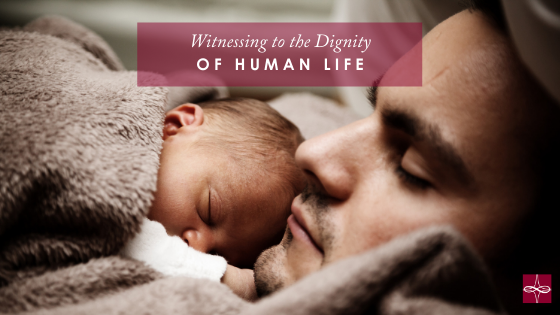

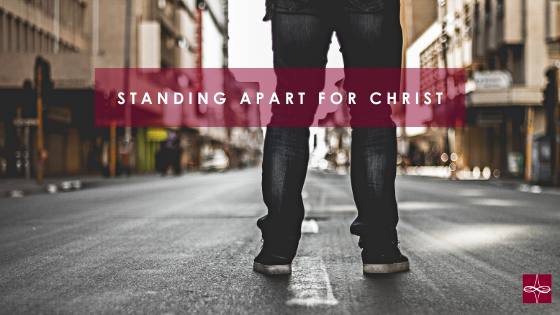

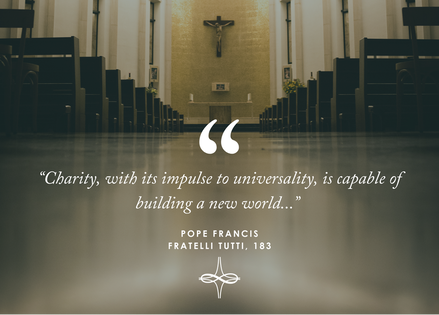
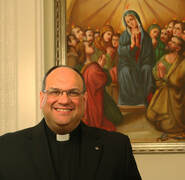

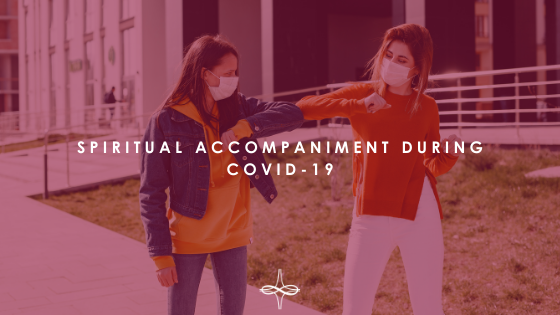
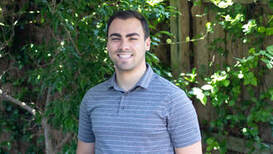
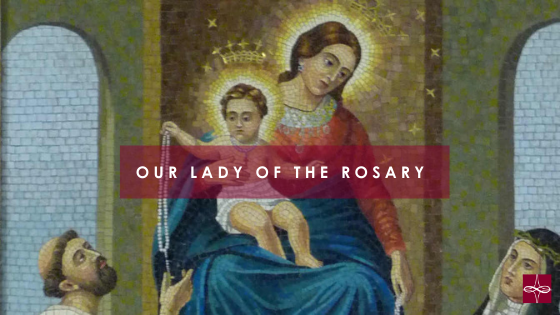


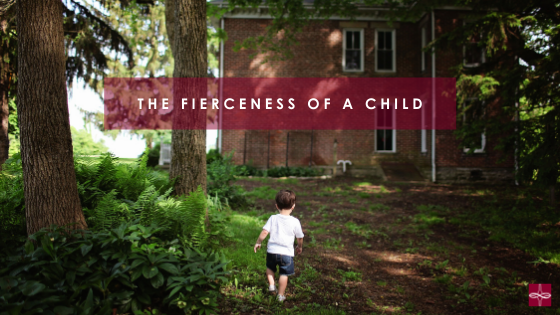

 RSS Feed
RSS Feed